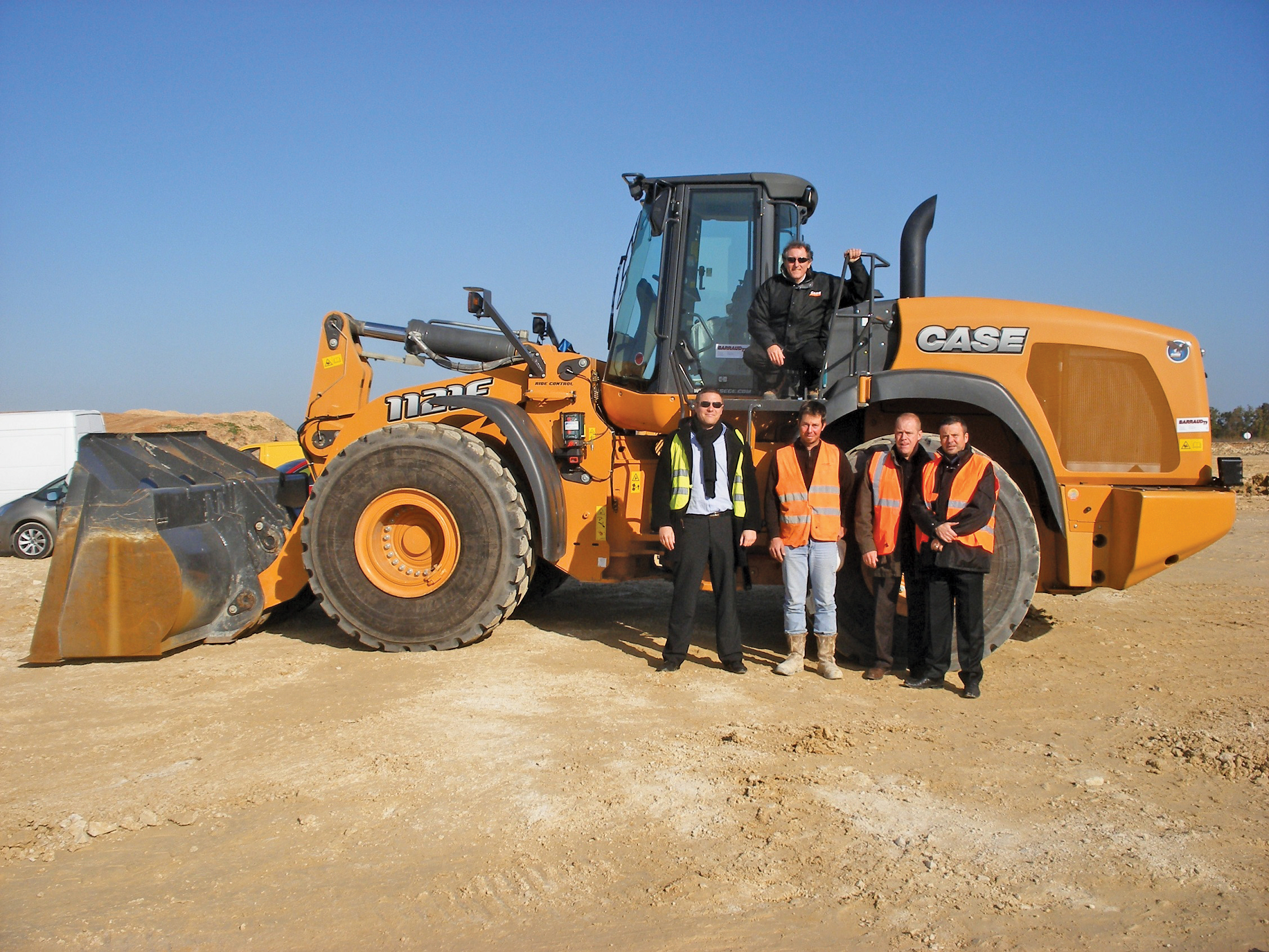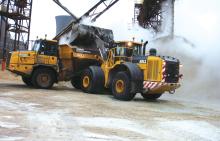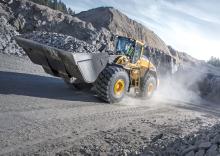
French contractor and quarry operator Trézence TP has taken delivery of the first Case 1121F wheeled loader sold in France. And it is claimed that the equipment supplied by Case Construction will enable Trézence TP to make savings of €100,000 over three years.
The 28tonne machine, complete with its 5m³ bucket, has immediately been put to work in a quarry supplying aggregates to the neighbouring LGV Sud Europe Atlantique (LGV SEA) high-speed rail project near Charente in the west of France.
It performs three tasks on site: digging from the face, feeding/emptying a crusher and loading trucks.
The brand new
Statistics compiled by Case say that for Trézence TP, fuel consumption of 12litres/hour for 1,000tonnes will “represent savings of 132,000litres of off-road diesel: that is a 20% reduction in its fuel costs, amounting to €103,000.”
Sophie Bendfredj, France’s business director for
Trézence TP, a family business, was established in 1978 in Migre, near La Rochelle. The company employs 18 staff and turns over in excess of €2 million, working mainly in general earthworks and marine applications.
The company already operates six Case crawler excavators, from a CX27 to a 33tonne CX330, and this contributed to the 1121F purchase.
“It will be of great assistance in meeting deadlines and improving our competitiveness, so that we can stand out from the competition, in particular for forthcoming projects such as the TER regional rail service and freight high-speed rail service,” says Jacques Arnaudeau, manager for Trézence TP.
The Selective Catalytic Reduction (SCR) technology is present on FTP (formerly Iveco) engines, installed on Case loaders, and it has been in use in a wide range of trucks and agricultural equipment in Europe since 2004.
“Additionally, on every new-generation Case loader, the Exhaust Gas Recirculation (EGR) has been eliminated to increase the combustion temperature, for increased engine output and low fuel consumption,” says Case Construction.
According to Case Construction, the SCR technology does not require any diesel particulate filter and uses no extra fuel to reduce emissions.
The LGV SEA project will bring high-speed rail to the west of France, connecting the regions of Poitou-Charentes, Aquitaine and Midi-Pyrenees with the high-speed service of northern Europe.
The journey from Bordeaux to Paris will take just 2 hours 10 minutes, with a projected speed up to 300km/hour.
Work started on the 300km long Tours-Bordeaux new double track in mid-2012 with preparatory and civil engineering work, and the line will be commissioned in mid-2017.
Costing €7.8 billion, the public private partnership (PPP) scheme also has €1 billion of related work, funded by
RFF is the licensor of the









